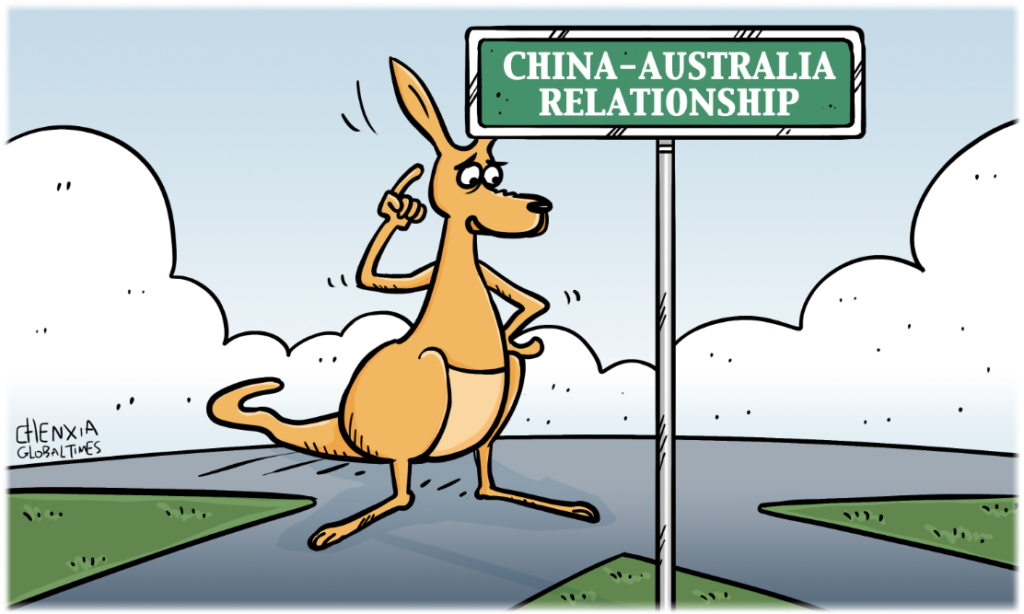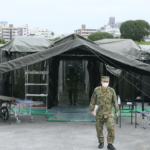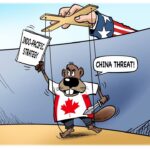Australian Prime Minister Anthony Albanese, instead of expressing explicitly his opposition to a reckless visit made by a bipartisan delegation of Australian politicians to the island of Taiwan, has tried to distance himself from the delegation by stressing the trip is not by the government and he “has no idea” of the trip’s intention.
Considering Albanese’s vague and cop-out remarks which will undoubtedly encourage the arrogance of anti-China forces and pro-Taiwan secessionist forces in Australia, there is a big question mark hanging over Australia’s sincerity on improving its relations with China, Chinese observers said.
According to Australian media, in the first visit by Australian members of parliament (MPs) since 2019, six federal MPs from the Coalition and Labor arrived in Taiwan island by flight on Sunday.
The group includes former deputy prime minister Barnaby Joyce, Labor MPs Meryl Swanson and Libby Coker, Liberal National Party members Scott Buchholz and Terry Young, and Liberal Gavin Pearce, Australian media outlet the Sydney Morning Herald reported on Saturday.
In response, Albanese claimed on Saturday morning at a press conference, “It isn’t a government visit; there remains a bipartisan position when it comes to China and when it comes to support for the status quo on Taiwan [region].”
Asked why the Australian MPs were going, Albanese said: “I have no idea. I’m not going. You should ask them.”
Chen Hong, president of the Chinese Association of Australian Studies and director of the Australian Studies Centre at East China Normal University, told the Global Times on Sunday that although according to the so-called tripartite system in the West, the prime minister or the president may not be able to directly block lawmakers’ moves, the head of state, in this case, can explicitly express his opposition to the visit, calling it an inappropriate behavior.
But Albanese apparently is opportunistic by merely playing down the visit amid concerns the trip will anger Beijing for challenging the one-China principle after relations between the two countries have begun to improve in recent months, Chen noted.
Although not under the rubric of the Australian government, the latest trip is definitely not a people-to-people visit as it includes senior politicians who will reportedly meet with Taiwan regional leader Tsai Ing-wen and the island’s senior official on external affairs Joseph Wu, Chen pointed out.
The trip echoes the pro-Taiwan secessionist forces in Australia and the world, and tries to hollow out the one-China principle, Chen said.
The trip exposes that within the Australian government there are anti-China forces trying to obstruct the improvement of Beijing-Canberra ties at a time when ties are moving toward detente.
Chinese President Xi Jinping met and held formal talks with Australian Prime Minister Anthony Albanese at the G20 Summit in Bali, Indonesia on November 15, the first talks between leaders of the two countries since Malcolm Turnbull was Australian prime minister in 2016.
The high-level interaction can be regarded as a top-down change and a major turning point in their relationship, but while the downward trend has been effectively stopped, there is still limited room for improvement considering Canberra’s provocative moves in following the US-led “Indo-Pacific Strategy,” observers believe.
Although the trip is not expected to be put in the same class as US house speaker Nancy Pelosi’s provocative visit to the island of Taiwan in August, “there is a big question mark over Australia’s sincerity in improving relations with China,” Chen said.
If the hard-won warming of China-Australia ties are harmed by such reckless moves, the national interests of Australia will again suffer, and Canberra will take the consequences, Chen warned.
Pelosi’s provocative Taiwan trip set a dangerous trend where parliamentarians of some Western countries have visited the island in succession under the influence of anti-China forces.
For example, a delegation from the UK’s House of Commons visited the island in disregard to China’s firm opposition in late November. In response, the Chinese Embassy in the UK on November 30 condemned the trip as being “a flagrant violation of the one-China principle and a gross interference in China’s internal affairs, and it sent a seriously wrong signal to the separatist forces for ‘Taiwan independence.'”
(Global Times)




